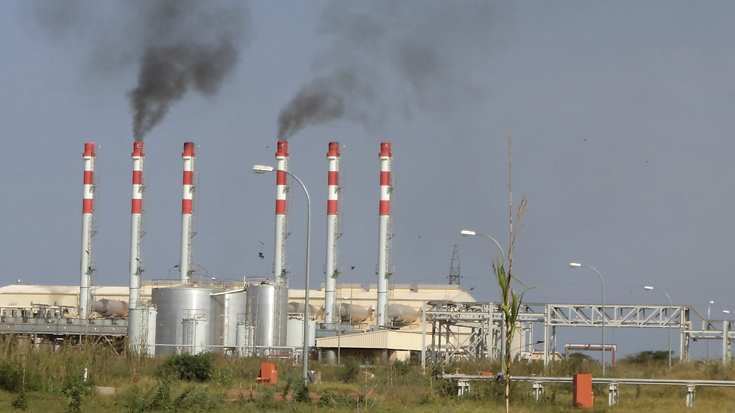On 5 September 2023, the trial started of Lundin’s former executives Ian Lundin and Alex Schneiter. They have been charged with complicity in war crimes in Sudan between 1999 and 2003. It is a landmark case because of its importance for the tens of thousands of survivors of the horror of Sudan’s oil war, and because it marks a milestone in the global trend towards effective accountability of corporations for contributions to gross injustices and violence.
The trial can be followed on www.unpaiddebt.org, via the PAX podcast Lundin War Crimes Trial, at Facebook and at X: #LundinWarCrimesTrial.
Caused the death of 12.000 people
Lundin signed a contract in 1997 with the Government of Sudan, in the middle of Sudan’s civil war, to exploit oil in an area that was not under Government control. All parties to the subsequent war routinely raped women, torched villages, looted cattle, destroyed means of survival, killed and maimed civilians. The war for control over Lundin’s concession area would cause the death of an estimated 12.00 people, displace 160.000 and throw the people who lived in the oil-rich area into deep poverty. Their right to remedy has been denied by Lundin, its business partners Petronas and OMV, and their shareholders.
We believe that justice for the victims of the civil wars in Sudan and South Sudan is a prerequisite for peace and reconciliation. For justice to be done, it is crucial that the truth is spoken, that perpetrators and their accomplices are held to account, and that those who have benefitted from crimes do not escape their duty to contribute to the victims’ right to remedy and reparation.
Oil and the Future of Sudan
Churches have since the late 1990s advocated for peaceful exploitation of oil and against its associated social and economic injustice. In 2000, the (New) Sudan Council of Churches (SCC/NSCC) launched the campaign “Peace First!”, calling for a suspension of oil exploitation until there was a comprehensive peace. Church leaders advocated directly with oil companies. Then, during the CPA negotiations, the Church advocated that injustices are made undone. In 2008, the SCC launched the programme Oil and Peace, aimed at the right to compensation of the victims of oil contracts. In response to the call of the Church, European partners established the European Coalition on Oil in Sudan (ECOS).
In November 2006, a group of South Sudanese civil society organisations attending the conference ‘Oil and the Future of Sudan’ in Juba called upon ECOS to assist in safeguarding the Comprehensive Peace Agreement. The Agreement had established a material right to compensation for injustices related to oil exploitation, but nothing was done. In response, PAX wrote Unpaid Debt for ECOS. The 2010 report looked at well-established facts about Sudan’s oil war through the lens of international law and Sudan’s Comprehensive Peace Agreement, drawing attention to the right to remedy and reparation of victims of gross human rights violations and to international legal liability of business enterprises.
Unpaid Debt describes how the arrival of Lundin, Petronas and OMV in concession area Block 5A in 1997 set off a spiral of violence as the Government of Sudan attempted to control the area by force. Until 2003, gross crimes were routinely committed by all sides, included killings, rape, child abduction, torture, pillage, use of child soldiers, destruction of schools, markets and clinics, and burning of food, huts and animal shelters. Thousands died and almost 200,000 people were violently displaced.
ECOS called upon the oil companies to address the fate of the harmed communities of the oil war. Its goal was a remedy process that would do justice and enable survivors to rebuild their lives. Lundin, Petronas and OMV took a confrontational approach and denied any responsibility. They claim to have acted in accordance with applicable local and international laws and to have improved living conditions.
Investigation into the reported international crimes and Sweden
In 2010, after receiving a copy of Unpaid Debt, the Swedish Prosecution Authority opened an investigation into links between the reported international crimes and Sweden. In November 2017, Lundin’s Chairman Ian H Lundin and its CEO and President Alexandre Schneiter were informed that they were the suspects in the investigation. On 11 November 2021, they were formally charged with aiding and abetting international atrocity crimes. The South Sudanese Council of Churches (SSCC) has made a statement of respect towards the Swedish authorities for bringing charges to Lundin Energy.
The trial finally opened on September 5th 2023. It is an exceptionally big criminal case. 32 plaintiffs and 92 witnesses will be heard and the hearings are scheduled to continue until early 2026.
The importance of the upcoming trial is threefold. It will be the first time that anybody will be held to account any crime committed during Sudan’s civil wars. It will be the first time since the Nuremburg trials that a multi-billion dollar company stands accused of aiding and abetting war crimes. And most importantly, it may lead to remedy and reparation of harmed communities by actors who stand credibly accused of contributing to war crimes and profiting from it, Lundin, Petronas, OMV and their shareholders.
Contact
Egbert Wesselink: wesselink@paxforpeace.nl
- 'We are trying to claim for compensation but no one is responding'
- 'I have the rights I believe'
- 'We cannot go back, a company is there'
- 'We as a community are crying and nobody is hearing us'
- PAX/Ecos publications
- Other publications
- News articles
- Statement SSCC
- Unpaiddebt.org
- European Coalition on Oil in Sudan (ECOS)
- Bloodhound




